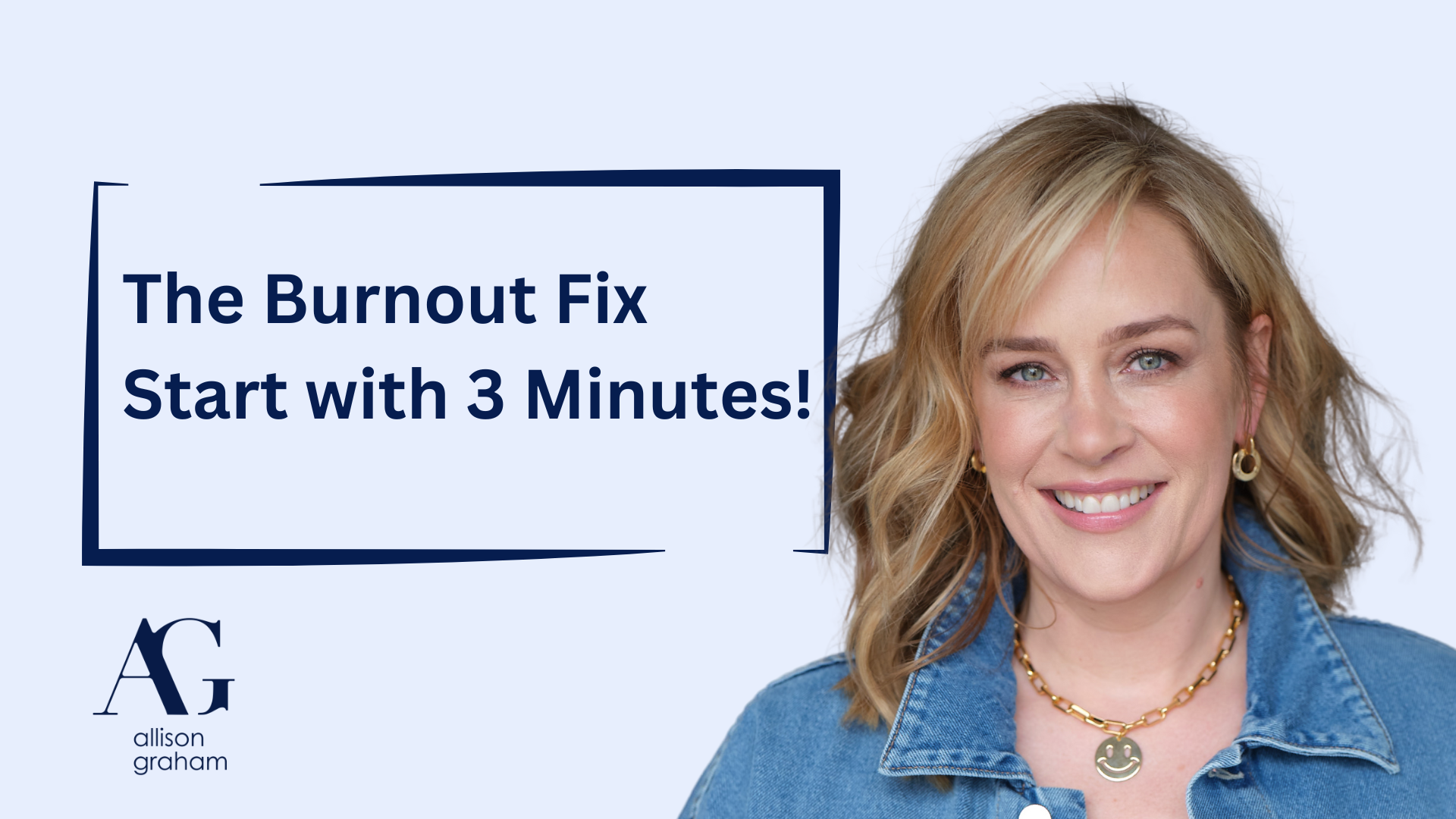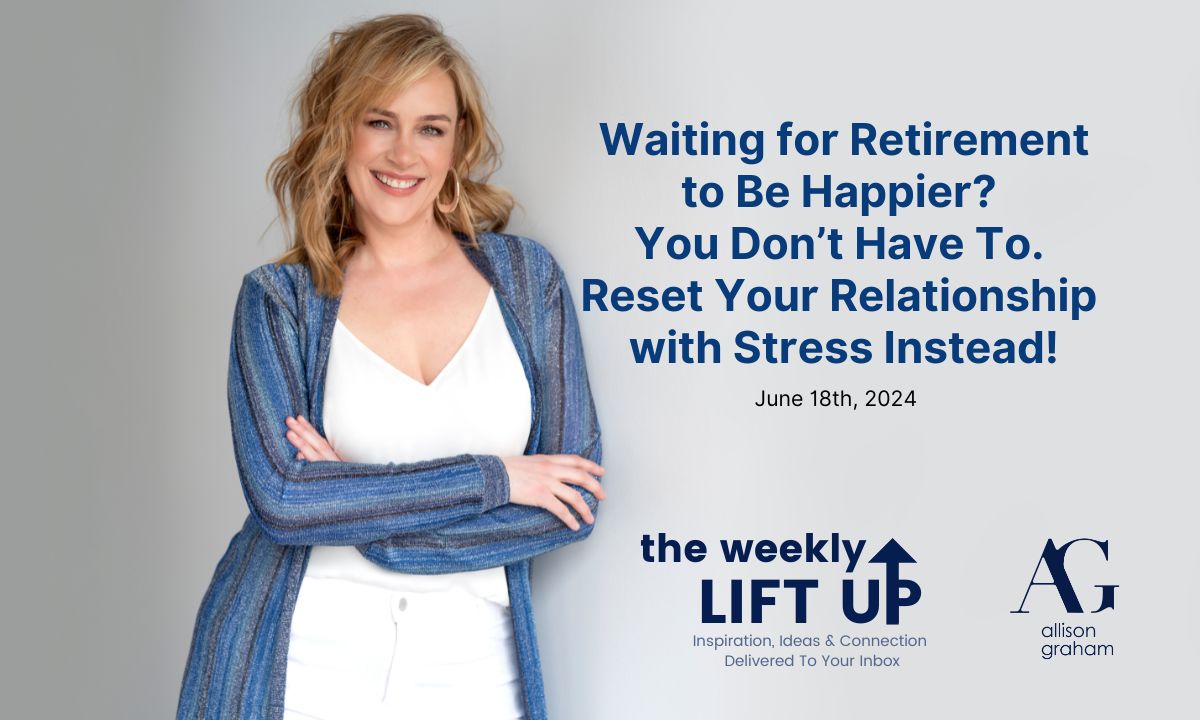Ever wonder why your stress isn’t getting better even though you have done everything right?
Statistics don’t lie. Something’s amiss when it comes to stress. Professionals are more educated than ever on how to lower stress – and yet, collective stress levels haven’t budged. A reported 70% of professionals and business owners feel burned out.
That’s a problem.
Clients and audience members consistently share frustrations such as these:
- “I feel like I’m drowning at work.”
- “I can’t relax because I feel too guilty about everything that has to be done.”
- “I am too exhausted for my family after putting out fires all day.”
- “I wake up in the middle of the night, worrying about work and I can’t sleep.”
There is no doubt they’ve tried to deal with their stress.
Even though they’re busy, they’ve done their best to follow popular advice for relieving stress. They’ve exercised, meditated, stayed positive for their team, and they’ve even attempted to get a good night’s sleep and not take things so personally.
Nothing has worked.
Can you relate? I can.
I had the same frustrations about dealing with my stress when I burned out.
Obviously, taking care of yourself by having ample sleep, exercising regularly, eating well, and breathing deeply are essential to a fulfilled, healthy life; I just needed to find a solution that went deeper and would fundamentally fix my stress.
My observation was that if I had to exercise to ‘release’ stress hormones, then it was too late; the chemical concoction had already done its damage.
Instead, my focus shifted. It became less about ‘managing’ stress that already happened, and more about stopping stress from firing so frequently and intensely in the first place.
That way, fewer resilience muscles needed to activate. This freed resources to deal with what really matters in life. Maybe just maybe, if I could crack this code, I could feel less exhausted at the end of each workday.
The wishful-thinking answer was to have fewer problems. Sadly, that’s not how life works – at least apparently not my life.
Next idea was to just work less. That wasn’t feasible, nor was it desirable. I wanted to work; I love my work.
Then, I went down the rabbit hole of cliched advice. ‘Don’t sweat the small stuff and it’s all small stuff,’ ‘don’t take things so personally,’ and ‘just push through the tough stuff.’
While all of this advice sounds good on a napkin and works for those who aren’t emotionally-charged beings, in reality, my inability to ‘just let it go’ was causing even more harsh self-judgment and intensifying my stress.
The next logical step in my journey to conquer stress was to get more organized.
I became obsessed with getting things done. I believed that if I could just Tetris everything I needed to do into the perfect workday, surely, I would alleviate my stress.
Nope, I would not. Here’s why.
Typically, people blame their stress on having too much to do and too many responsibilities. While it’s true that most of us have overflowing plates, this is not what causes burnout.
Once you know how to do the tasks required by your job and to function in your life, the ‘doing’ is the easy part. The problem is, we never just DO anything.
There are always human dynamics – emotions, storylines and behaviours – that are wrapped around everything we do. It’s within that nuance that we have the power to intensify, alleviate, or neutralize our stress response.
There are inevitably big life issues that require a lot of resources to process. We can’t stop our survival stress reaction to life’s adversities, traumas and emergencies; that’s instinct. That type of stress signals immediate danger or loss and forces us to be resilient at a macro level.
Ongoing daily stress is not related to these significant life events. A person’s ability to deal with daily obstacles, unending tasks, and relationship dynamics at a micro level determines their overall quality of life.
To truly fix our stress and heal from burnout, the focus needs to be on neutralizing some of this intensity because it’s what causes burnout.
Stress is intensified and drains our personal capacity unnecessarily when…
- emotions are disproportionate, misdirected or unprocessed
- storylines are extreme, negative, or make believe
- behaviours are unhelpful habits that act as barriers to optimal performance.
Once it’s obvious that the daily tasks and inevitable obstacles are not to blame for stress, it’s possible to shift focus to solving for the real culprit: the reaction to those tasks and obstacles and life adversities.
After considering this perspective, I realized why the napkin cliches and traditional stress management advice were not having a material impact on controlling stress levels for me or my clients. It’s because these ideas didn’t account for the truth of why stress was being created and intensified.
While it’s not easy to rewire our stress reaction to the daily grind and I find it’s an ongoing exploration – it’s actually easier than most people imagine. While I offer keynotes, training and coaching on my stress solution, the basics are this:
To effectively deal with daily stress requires a combination approach that starts with being compassionately curious with your stress response and exploring how those reactions are making life harder than it needs to be. Often, the answer is as simple as bringing awareness to the human dynamics and then objectively problem solving in a way that honours the reality of the human experience and your unique circumstances.
Until you’re able to recognize and neutralize the human dynamics that are wrapped around each issue, stress levels won’t materially change – no matter how many trips to the gym you make, mid-day naps you sneak, or deep breathes you take.








